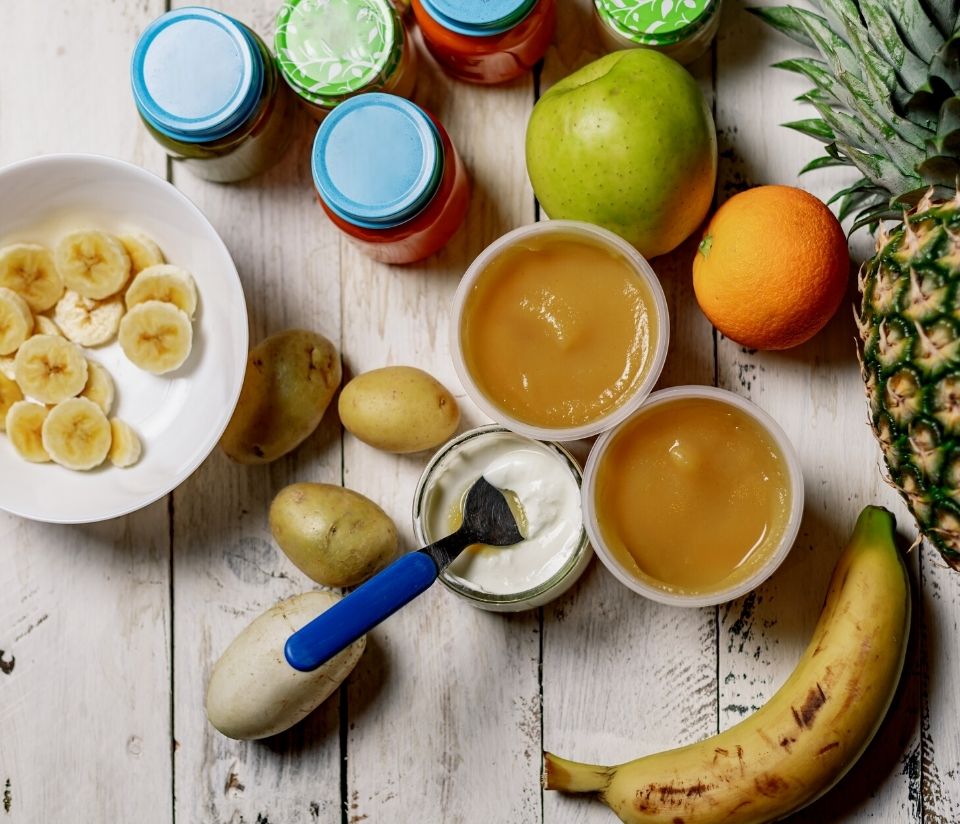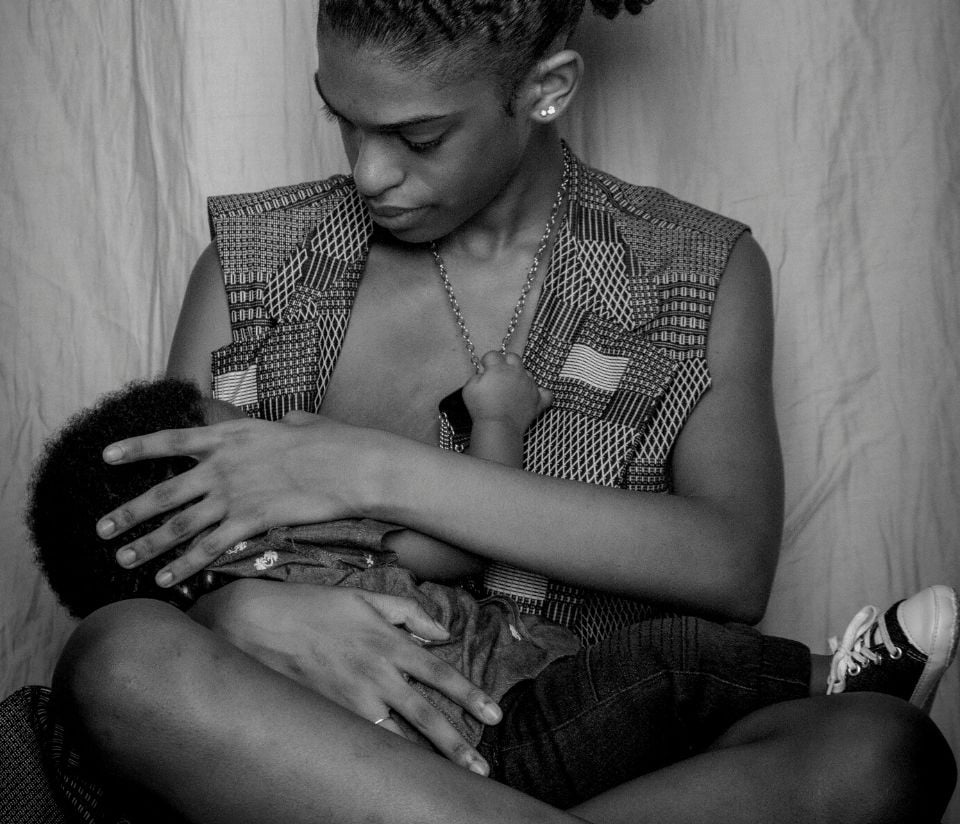
Ethical & Organic Baby Food
See our Ethical Baby Food Ratings Table to compare brands
The baby food market: Big money, little tummies
If you have a baby, you probably write ‘baby food’ on your shopping list at least once a week. (And nappies. Of course.) Feeding your baby is top priority. Every parent or carer wants to provide their baby with the most natural care and nutrition possible. And baby food brands have noticed this. Baby food is big business and greenwashing is everywhere. So from organic baby food to formula, here’s your Good Shopping Guide to the most ethical baby food out there.
The market for baby food includes everything from baby formula, to rusks and wafers, to quick-and-easy baby food pouches, to baby purees easy for tiny tummies to digest. The UK baby food business generated over £1.4 billion in 2020, and is expected to expand steadily to around £1.7 billion by 2025. But with several high profile cases of misinformation and irresponsible marketing, it’s a challenge for the mindful shopper to find ethical baby food brands. Check out our Ethical Baby Food Ratings Table to buy from brands who produce organic baby food, organic baby formula and score well for the Environment, Animal and People.
Is baby formula healthy?
In the UK, the NHS has long advised and supported parents/carers to feed their babies with breastmilk. Where breastfeeding is not possible, baby formula can be used instead with guidance from your GP or midwife. The Good Shopping Guide believes that no one should feel ashamed or confused about feeding their baby. Please speak to your GP or midwife if you have any questions about giving your baby breastmilk or baby formula.
Some babies may start to be weaned from breastmilk or baby formula when they are around six months old. (Though parents or carers can continue to feed their babies with milk beyond six months.) Please speak to your GP, midwife or breastfeeding specialist if you have any questions about how to wean your baby.
The WHO/UNICEF International Code of Marketing of Breast Milk Substitutes was created in 1981. This Code was written up in response to marketing tactics used by baby food and baby formula producers. The Code offers numerous rules to support breastfeeding, including solid foods being labelled as suitable only from six months.
The Nestlé baby formula controversy: Aggressive marketing practices
In the 1970s and 80s there were several famous protests, court challenges, books published and boycotts against Nestlé and other baby formula brands. The boycotts challenged these brands on their aggressive marketing to poor parents. (In poorer nations, using baby formula had serious health repercussions for newborns.) This was a significant moment in ethical consumerism and public awareness of international markets. These protests still have an effect on shoppers today, as we consider how our buying habits have global reverberations.
Nestlé still consistently scores low in our ethical comparison ratings tables in all three of our criteria, Environment, Animals and People. Mindful shoppers and parents/carers who want ethical baby food or ethical baby formula should be aware of this brand’s activity.
IBFAN expressed concern about a conflict of interest in a 2021 press release. Controversial baby food producer Danone partnered with the United Nations’ Food and Agriculture Organization. This posed some serious ethical questions.

Baby food pouch packaging: Convenience or landfill problem?
Every parent or carer knows the rush. You have to leave the house, so one kid starts screaming because they’re hungry, one ‘doesn’t like carrots anymore’, and one has started unpacking their lunch box on the front step. Baby food in pouches is the answer for busy parents and carers. Baby food in pouches can be eaten on the go, babies can eat from them easily and they don’t require washing up afterwards!
Unfortunately, these baby food pouches are not widely recyclable, and often end up in landfill where they do not biodegrade. However, parents/carers should check out Terracycle to see if your brand of baby food packaging can be recycled.
Looking after a baby can be really hard work. If it seems too much to cut pouches out altogether, why not try buying one or two glass jars of baby food to have during the week? Little steps towards change can be so effective.
Why should I buy organic baby food?
Infants are more susceptible to toxins (such as pesticide residues) than adults are. This is one compelling argument for organic baby food. Because babies eat a lot! Because babies consume more food in relation to their overall body weight than adults do, small quantities of harmful substances can have a big effect. This is why buying organic baby food (produced without the use of toxic chemicals) is more ethical, and better for your baby.
Thankfully, organic baby food is now relatively easy to come by. Consumers are now educated about the harm that certain agrochemicals can do to farm workers, the environment, insects, and ecosystems. In organic baby food, pesticide residues, growth hormones, nitrates, and GM crops (which can be found in conventionally farmed foods) are absent.
Check the brands in green on our Ethical Baby Food Ratings Table. Many of these brands offer organic baby food, and even vegan baby food.
Other ethical baby food options: Do it the old fashioned way
Whilst buying baby food from organic baby food or organic baby formula brands can be convenient, safe and easy, making your own baby food at home can be a cheaper and more sustainable alternative. The NHS recommends pureeing or blending certain types of vegetables with no added sugar or salt for very small babies. Please seek advice from your GP or midwife if you are concerned about making baby food at home. Find more guidance from the NHS: Your baby’s first solid foods.
See our Ethical Baby Food Ratings Table to compare brands
The Good Shopping Guide has researched the most popular and available baby food brands, so that consumers can be better informed about the brands we’re all buying from, and where our money is going! Click on an individual brand name to read exclusive and in-depth reporting on baby food brands’ ethics.
HiPP, Kiddylicious, Little Freddie, Little Yeos, Oliver’s Cupboard, Piccolo, Organix, Babease, Annabel Karmel, For Aisha, Little Dish, Earth’s Best, Ella’s Kitchen, Cow & Gate and Heinz.